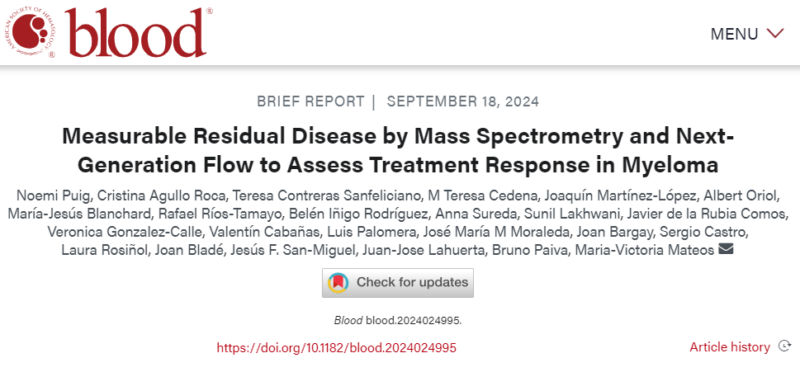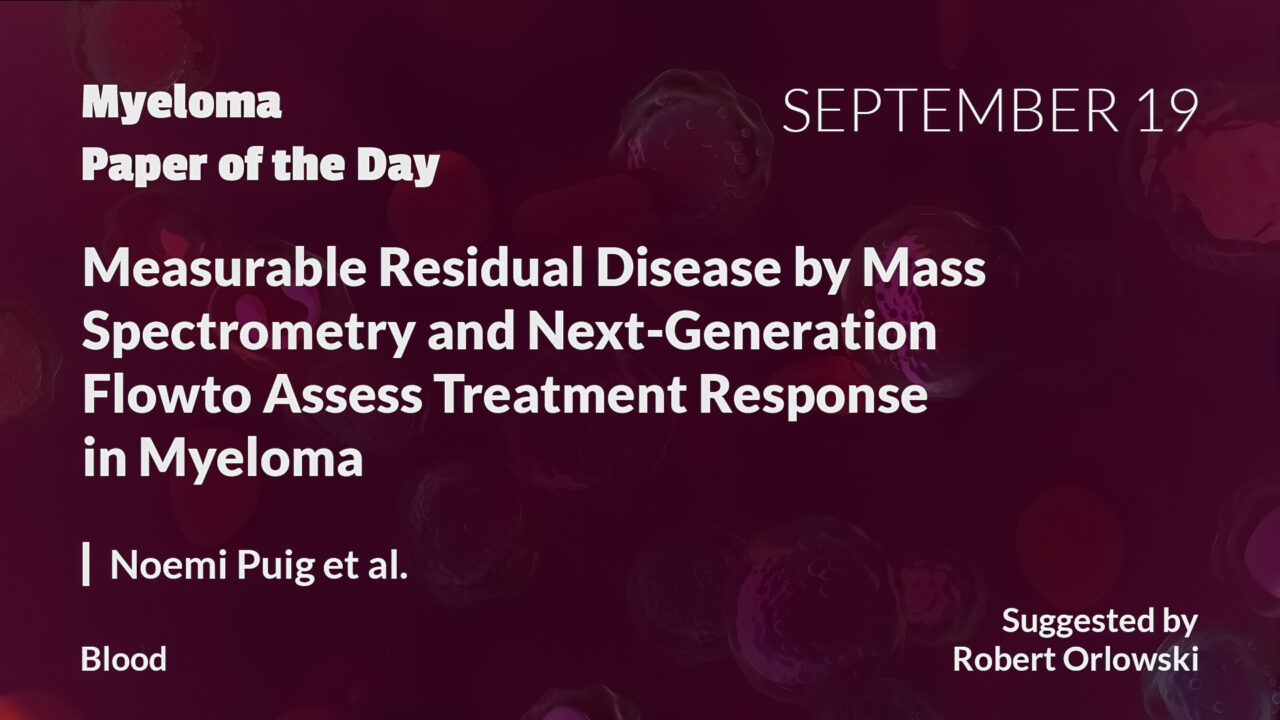Robert Orlowski shared on X:
“Myeloma Paper of the Day: Study of data from the GEM2012MENOS65 and GEM2014MAIN trials comparing MRD testing by quantitative immuneprecipitation mass-spectrometry of blood vs. next generation flow on marrow finds similar prognostic value.”
Source: Robert Orlowski/X
Authors: Noemi Puig, Cristina Agullo Roca, Teresa Contreras Sanfeliciano, M Teresa Cedena, Joaquín Martínez-López, Albert Oriol, María-Jesús Blanchard, Rafael Ríos-Tamayo, Belén Iñigo Rodríguez, Anna Sureda, Sunil Lakhwani, Javier de la Rubia Comos, Veronica Gonzalez-Calle, Valentín Cabañas, Luis Palomera, José María M Moraleda, Joan Bargay, Sergio Castro, Laura Rosiñol, Joan Bladé, Jesús F. San-Miguel, Juan-Jose Lahuerta, Bruno Paiva, Maria-Victoria Mateos.

Other posts featuring Robert Orlowski on OncoDaily.
Robert Orlowski, M.D., Ph.D., holds multiple positions at The University of Texas, MD Anderson Cancer Center including Chairman, Ad Interim Director of Myeloma, and Professor of Medicine in the Departments of Lymphoma/Myeloma and Experimental Therapeutics within the Division of Cancer Medicine. Additionally, he chairs the SWOG Barlogie/Salmon Myeloma Committee, which is part of the National Clinical Trials Network, dedicated to advancing new therapies and understanding the biology of myeloma.
Dr. Orlowski’s expertise lies in both clinical practice and scientific research, with a particular focus on translating laboratory discoveries into effective treatments for patients. He investigates drug resistance mechanisms in myeloma and seeks to identify predictive biomarkers for treatment response. Notably, his past contributions include leadership roles in developing proteasome inhibitors like bortezomib and carfilzomib, as well as monoclonal antibodies such as daratumumab and elotuzumab.


